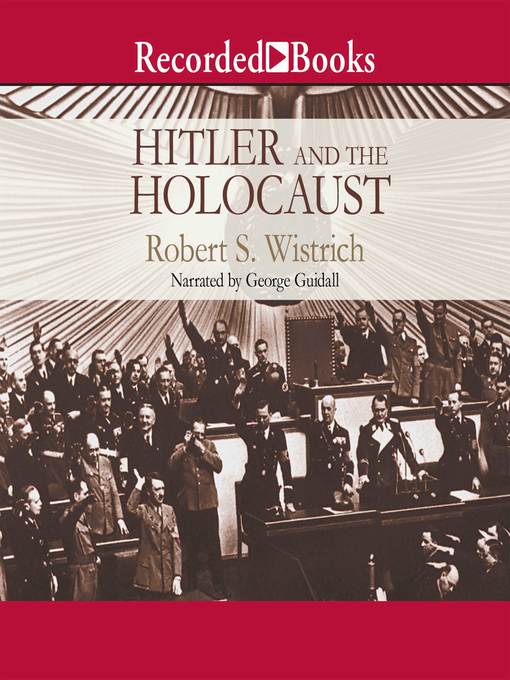
Hitler and the Holocaust
فرمت کتاب
audiobook
تاریخ انتشار
2008
نویسنده
George Guidallناشر
Recorded Books, Inc.شابک
9781440781216
کتاب های مرتبط
- اطلاعات
- نقد و بررسی
- دیدگاه کاربران
نقد و بررسی

A Hebrew University professor examines the genocide of WWII and its central place in Hitler's National Socialism, expounding on the theme that "no other event of the modern era has so fundamentally challenged the foundations of European civilization." Information like why some cultures, such as the Italians and Belgians, protected the Jews, while others, such as the French and Turks, were so willing to assist the Nazis is an example of the audiobook's relevancy to more than a single event. The text contains plenty of German names and places, and noted narrator George Guidall's velvet voice moves through them without a hitch, making an interesting story even better. J.A.H. (c) AudioFile 2002, Portland, Maine

September 3, 2001
Wistrich, professor of modern Jewish history at Hebrew University in Jerusalem, has masterfully condensed four decades of Holocaust research into an accessible and informative book that will benefit specialists and lay readers alike. This new addition to the Modern Library's Chronicles series of short histories is organized thematically, exploring 2,000 years of anti-Semitism, the context and events that yielded the Third Reich and what differentiates the Holocaust from other 20th-century genocides. As depicted here, the few rays of light offered by the noble actions of Denmark, Italy and Bulgaria are snuffed out by the Protestant and Catholic churches' inactivity, the shameful behavior of Britain and the U.S., and the atrocious actions of Germans and other Europeans, particularly the German allies. Wistrich (The Jews of Vienna in the Age of Franz Joseph) continually refers and responds to other Holocaust studies; of particular interest is the controversy concerning "ordinary men" and "ordinary Germans" that erupted with Daniel Jonah Goldhagen and Christopher Browning's studies. Wistrich draws a connection between the infamous Nazi euthanasia program and later developments, and briefly discusses the debate between "functionalists" (those who believe the Holocaust to be an outcome of the war) and "intentionalists" (those who believe Hitler always intended to exterminate the Jews). The general reader will be interested in Wistrich's detailed description of the decision to implement the "Final Solution." The most provocative chapter, though, is surely the last, on "Modernity and the Holocaust." Most commentators (secular and religious) have argued that the Holocaust represents the complete antithesis of Western civilization, but some scholars interpret it as the logical, brutal outcome of Western modernity's bureaucratic, technocratic and rationalist impulse. Wistrich's balanced, nuanced discussion is illuminating. Agent, Andrew Wylie.

























دیدگاه کاربران